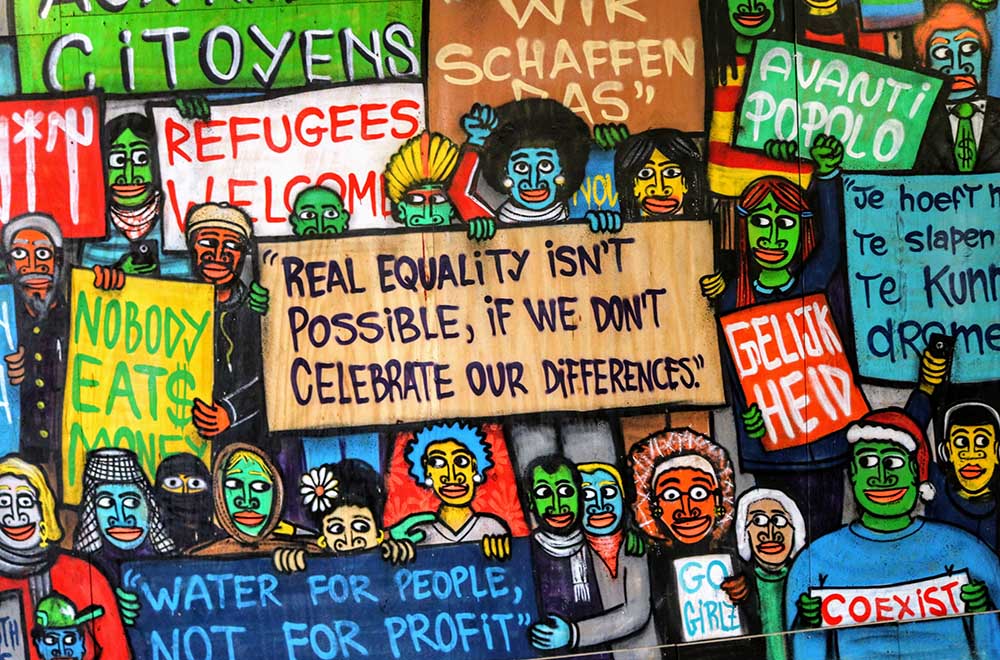
Differences are a big thing in the United States. And always have been. We love to say that human beings are all equal, all alike, all welcome, all free to participate in the purpose and fulfillment of life. And that's true — but not totally true. In fact, we have never, all of us, been anything close to that.
Whole populations have been excluded from American society and or citizenship at any given time in our history. Ask the Native Americans, African-Americans, or women.
Ask Catholics whether they got a warm welcome here in the 19th century. Ask the Chinese who were allowed to build our transcontinental railroads but were not free to seek citizenship.
Ask Eastern Europeans how it felt to integrate into the United States. Ask the Japanese what they went through trying to be seen as Americans — even to this day. Ask Central Americans and other Hispanics who have picked our fruit and vegetables for decades now how American they feel yet. How welcome. How cared for — even if they were born here in a country with a birthright clause that it is now seeking to ignore.
No doubt about it: Differences are a big thing. They keep a society alive. They are a well of creativity, a signal of new possibilities. They are the resources that nourish a new future for us all. Which is exactly where Benedict's second principle of life comes in.

